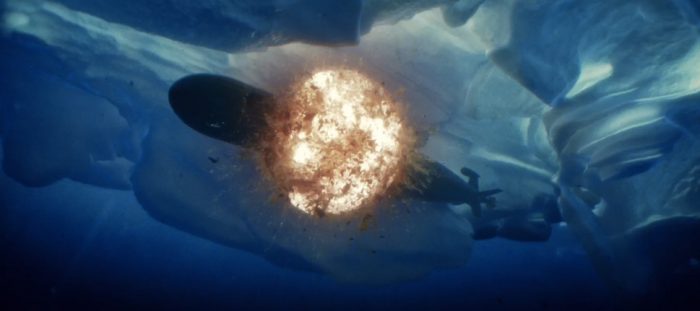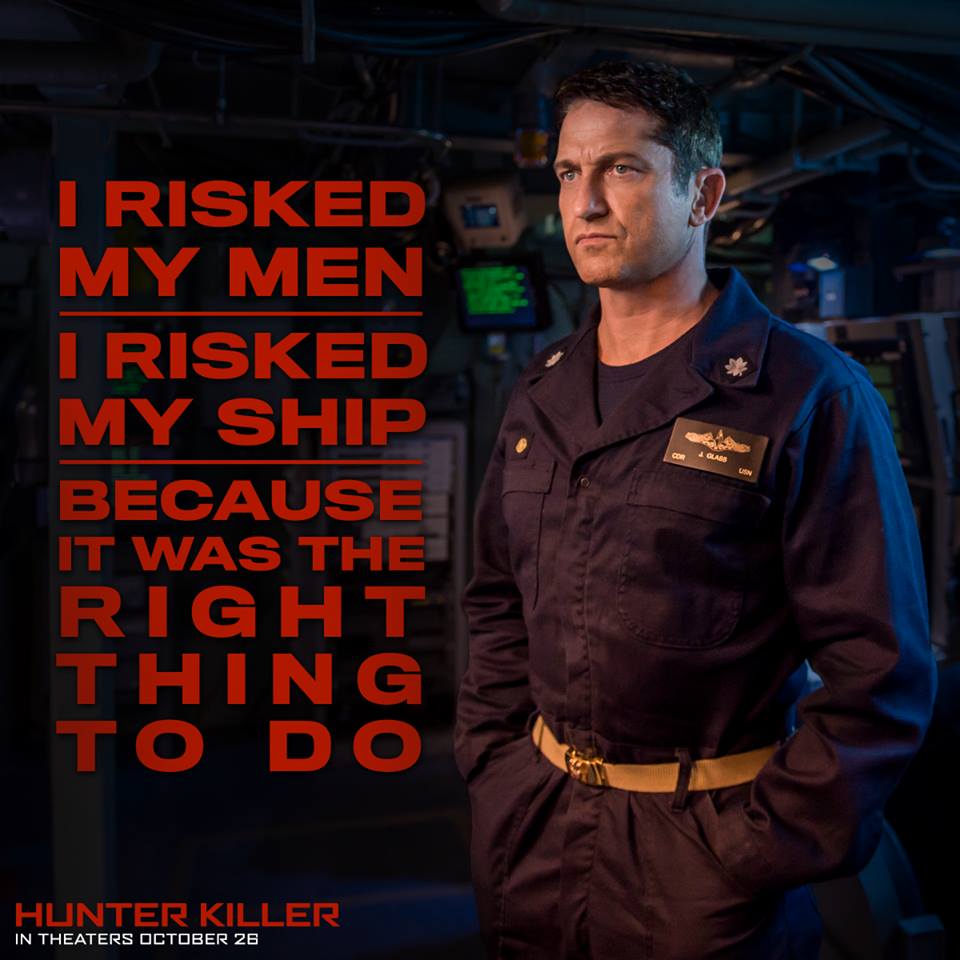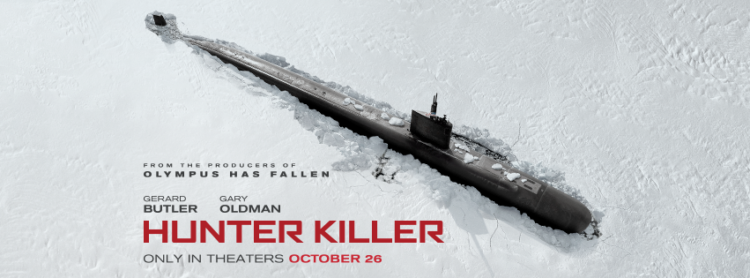It seems that as each generation of Americans ages into adulthood, most tend to covet the era of our own childhood as the “golden age” of popular culture. My birth date places me somewhere between junior-Gen-Xer and senior Millennial: just young enough to retain my passion for 80’s and 90’s films, but too old to understand skinny jeans or why people suddenly love avocados so much.
Being a connoisseur of movies from the latter decades of the 20th century means I grew up on a steady diet of films that included “The Hunt for Red October” and “Crimson Tide.” These films, though separated by nearly a decade, bridged the gap in my young mind between the science fiction I loved so much in Star Trek and Star Wars and the grounded reality I saw on the news. Submarine commanders, I thought to myself as a kid, were our Captain Kirks — operating alone and unafraid in the vast emptiness of the world’s oceans.
As I’d come to find when I spoke to the authors of “Firing Point,” the book the new submarine movie “Hunter Killer” is based on, I had at least part of that right. George Wallace, co-author of the book and a former submarine commander himself, told me in no uncertain terms that working aboard a submarine involves quite a bit of fear indeed — and after watching Hunter Killer, I feel as though I have a solid grasp on why.
I was granted a private screening of Hunter Killer last week, and once the James Bond-like allure of watching studio personnel ferry the advanced screener into the building and posting “guards” (theater staff) outside the door to make sure the world didn’t get a peak, I felt myself get nervous. The submarine movies of my youth set the standard rather high… how would I be able to objectively compare this new effort to the sorts of films I call “the classics” and force my wife to sit through at regular intervals? Is it fair to compare Gerard Butler’s command of the Arkansas to Sean Connery aboard the Red October? Could the drama on the bridge be depicted with the same suspense that permeated throughout Crimson Tide?
Just about three minutes in Hunter Killer, I forgot about all that crap.

Hunter Killer is not a modern attempt at recapturing the fond cinematic memories of my youth — it’s an action movie adorned with foreign policy trappings, a highlight reel of naval capabilities, and a modern take on one of this nation’s longest lasting conflicts. This movie isn’t a reboot of an old sub-flick, it’s a brand new bit of military fiction that aims to break free from the somber reality of modern warfare in cinema, and reintroduce the sort of idealism that tends to exist only in the form of intangible nuance in real life.
I may have loved the recent rash of true-story war films like Lone Survivor, 13 Hours, and American Sniper — but the inherent reality behind these movies comes with an emotional toll. My wife and I didn’t say a word to one another as we drove home from the theater after watching Lone Survivor; both too caught up in our own thoughts and memories about the people we’ve lost in the past two decades of conflict. There’s no escapism in a film like that, nor should there be. But I’ve come to long for a return to the type of war movies I could be excited about, without carrying the burden of knowing those on-screen deaths depict real Americans that never made it back to drive home in silence next to their wives. I leave these movies feeling lucky, grateful, and… if I’m honest, guilty. Here I am, being thanked for my service when much more deserving men, real heroes, can’t ever be thanked again.
Instead of a somber retelling of the final days of great men, Hunter Killer offers a realistically grounded but overtly fictional reality. The units, the gear, the vessels — they all exist in our world, but the players don’t. The captains, the Russians, even the female president of the United States all make it clear that this film takes place in a reality just slightly removed from our own: one where we can enjoy our perch at the edge of our seats knowing that the stakes of the moment don’t extend beyond the screen. The suspense is there, the drama is there, and the action is ever present… but without the guilt that comes with watching a recreation of true events.
Fiction gets a bad wrap when it comes to educating people. We tend to think of stories as either true, or not true, but movies like Hunter Killer offer us a perspective into a reality that would otherwise be alien to us. We experience the life of a submarine commander through Butler’s Joe Glass, a man intrinsically familiar with the function of his ship. That confidence translates to the viewer, giving each of us the opportunity to feel as if we’re at the helm of a nuclear submarine, and to embrace the tension of a conflict that could boil over into a new world war.

Already have an account? Sign In
Two ways to continue to read this article.
Subscribe
$1.99
every 4 weeks
- Unlimited access to all articles
- Support independent journalism
- Ad-free reading experience
Subscribe Now
Recurring Monthly. Cancel Anytime.

Hunter Killer isn’t a return to the heyday of the submarine fiction of the 80s and 90s, nor is it a thoughtless exercise in recruiting like “Battleship” or “Battle: Los Angeles.” It’s a thought exercise embellished with explosions. What could our submarines do if faced with this challenge? How would the Pentagon react to a Russian coup? Could one man really stop World War III?
Hunter Killer won’t give you the smoldering suspense of Red October, nor will it leave you gritting your teeth to hold back tears. Instead, it takes the very modern threat of a near-peer conflict out of the headlines and puts it back where we can enjoy it: in a fun movie with classically depicted heroes and a happy ending.
If you’re anything like me, and explosions are a requisite for date night movies, Hunter Killer gives you plenty of bang for your buck. It’s quick paced, and though it doesn’t always accurately portray the ways close quarters battle (CQB) or naval warfare really works, it rarely, if ever, departs from reality so egregiously that you find yourself wincing like a mechanic watching a Fast and Furious movie.
Real warfare is awful, but fictional warfare can be rad — and hopefully, Hunter Killer is just the beginning of a resurgence in fictional warfare story telling.
Hunter Killer hits theaters on October 26th.












COMMENTS